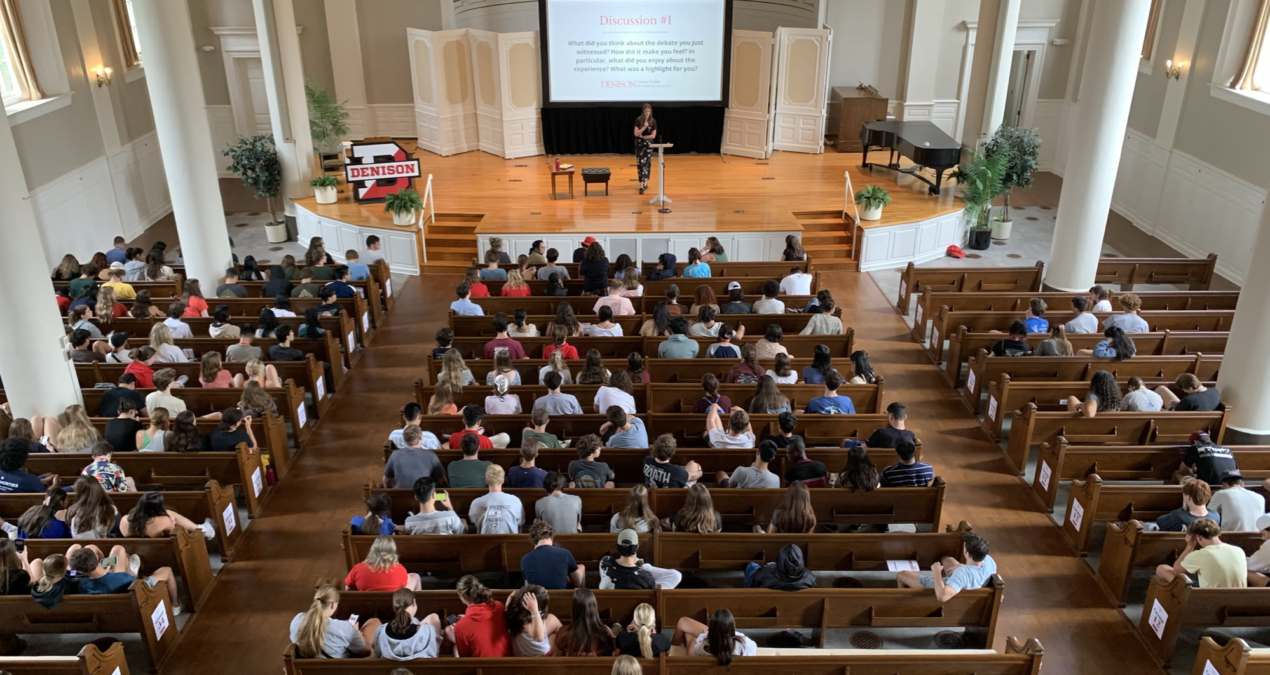Marissa Sullivan, Special to The Denisonian—
Denison’s Debates and Discourse Program is encouraging students, faculty and community members alike to relish in the impact a single difficult discussion can create.
The program works towards its goal of depolarization through deliberately proposing divisive topics for their debates, student fellow Luke Romeo Alley explained. With its concern for complex issues, the organization seeks to bring students together through constructive dialogue.
While the program’s name may evoke images of competitive debate, Dr. Adam Davis, Director of the Lisska Center for Intellectual Engagement and the faculty fellow for the Debates and Discourse Program, hopes to shift this image to one of constructive, purposeful dialouge.
“These are more discussions… than debates” Dr. Davis said. “[The program] is really about dialogue across differences and learning how to have productive conversations about hard topics in a civil way.”
To maintain the respectful atmosphere that characterizes these debates, the Debates and Discourse Program mirrors the practices of its parent organization, Braver Angels, which Dr. Davis defined as “a national organization… that works to depolarize American society.”
These events employ a specially designed parliamentary format, involving depersonalized language in which participants address the debate chair rather than directly addressing speakers so as to create “guardrails… to keep [debates] from getting personal or toxic,” Dr. Davis said.
Though these practices may seem formal, they are the key to transforming these often difficult conversations into constructive, respectful exchanges of ideas.
Those who have participated in these events often have similar reactions, citing instances of personal enrichment and pleasant surprise. “I love discussing politics… so interacting with people who have opposing ideologies… to me really enhances my ability to understand,” Alley said.
Dr. Davis discussed the program’s tradition of debriefing and the responses that typically follow a debate.
“Students comment on how surprised they were… it felt kind of liberating… talking about hard things. It actually felt good to be doing it… in a way that wasn’t a shouting match,” Dr. Davis said.
Though the program has partnered with Denison, its impact is not limited The Hill. The Debates and Discourse Program is a three-way partnership between Braver Angels, the American Council of Trustees and Alumni, and BridgeUSA; the program is funded by a $1.26 million grant from the John Templeton Foundation.
Denison is one of ten universities selected to participate in a two-year study “to try to assess the impact that debates can have on a campus culture,” Dr. Davis said.
“Everyone has a voice, and it doesn’t matter who you are; it’s about the ideas and the arguments, not the person,” Dr. Davis says, “Just come as you are”.
Those who hope to journey beyond the often polarized nature of modern discourse are encouraged to attend the next campus debate, at 6:00 p.m. on September 19 at The Moonies.

